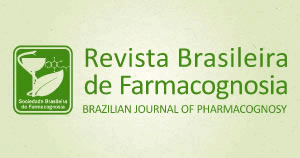Some pharmaceutical industries of phytomedicines are using conservation procedures (drying, autoclaving), in an attempt to avoid medicinal plants degradation, and of their fluid-extracts. Or, by adopting techniques adequate to foods, which not always are appropriate. On this sense, there is less research with Brazilian plants, causing some difficulties for their use as raw material by the domestic industry. Thus, the effects of drying at various temperatures or irradiation with microwaves, as well as autoclaving or lyophilization of the fluid-extract of samples collected in natura of Echinodorus macrophyllus (Kunth) Micheli, Alismataceae, on the pharmacochemical composition were analyzed. At the research for chemical groups, the preponderating presence of flavones and coumarin derivatives was observed. The chromatographic profiles of the flavonic extracts were analyzed by TLC and HPLC and the levels of total flavonoids were determined. According to the results obtained, qualitative and quantitative changes were caused by the various processes employed.
Echinodorus macrophyllus; fluid-extract; drying effect; conservation processes; pharmacochemical composition



